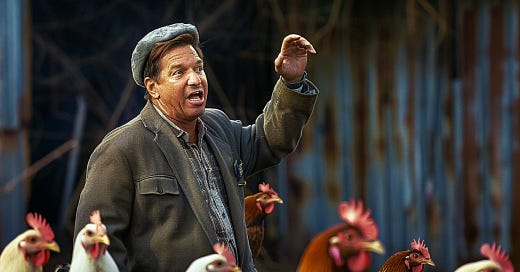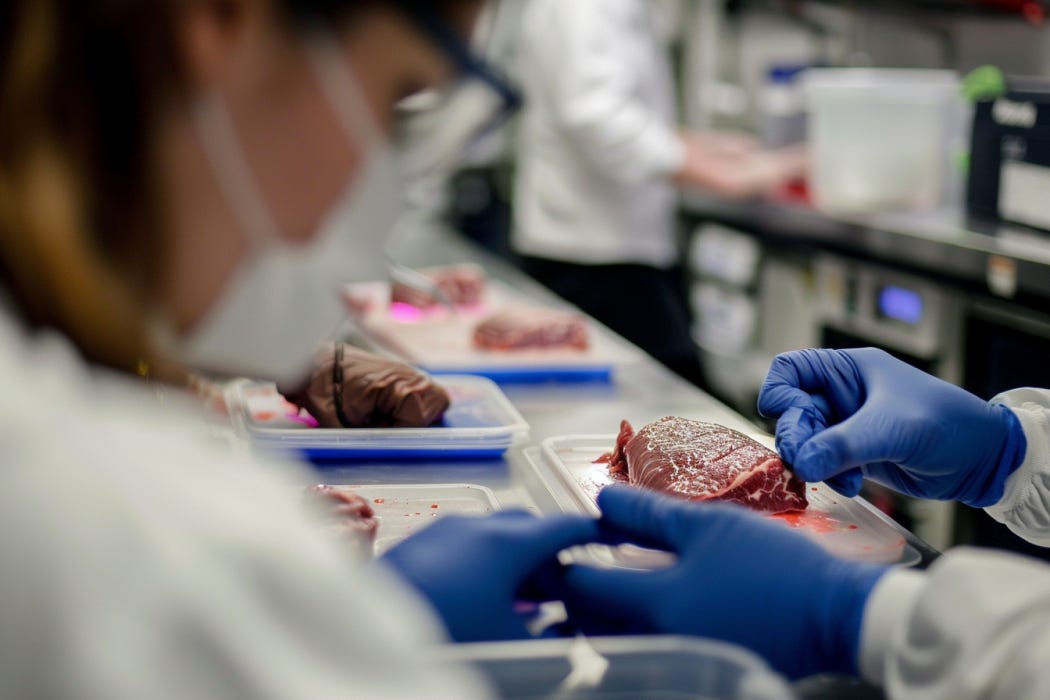Last week, John Fetterman did the unthinkable: he agreed with Ron DeSantis. Normally, reaching across the aisle should be a good thing, especially in our fractured era.
This one’s different. The Pennsylvania senator boosted a recent ban by the Florida governor. Unfortunately for both men, the bill is really, really dumb.
The reason? Protecting the interests of Florida cattle farmers. As expected, DeSantis couldn’t miss an opportunity to throw unnecessary shade into the mix:
Today, Florida is fighting back against the global elite’s plan to force the world to eat meat grown in a petri dish or bugs to achieve their authoritarian goals.
While it’s impossible to accurately count the total number of animals killed for food every year, a 2023 estimate put it at 92.2 billion. And that’s just land animals; seafood is somewhere between 1 and 2.8 trillion animals. A recent investigation found that humanity’s lust for salmon is driving the species to extinction.
None of this is sustainable. Raising and farming livestock and seafood remains one of the biggest drivers of climate change.
This isn’t our only unsustainable consumption habit. As the Wall St Journal reported last week, we might soon be sipping on synthetic java.
Worldwide, people consume two billion cups of coffee a day. Given that the average Arabica tree produces only one to two pounds of coffee a year, that means every two-cup-a-day coffee drinker requires continuous production from around 20 coffee trees.
I’m not trying to moralize or shame here. I’m a carnivore, and have talked extensively on Conspirituality about my reasons for switching from decades-long vegetarianism (and veganism) for health purposes. I don’t regret that decision.
But in a world with so much technology in development, using pluripotent stem cells to create and manufacture lab-grown meat is smart (though not without challenges). I’ve reported on this trend since 2017, and while there are still barriers to mass production, the industry is getting closer to a mainstream product.
Any serious politician who wants to ensure we have a sustainable agriculture system needs to consider lab-grown meat. New Florida resident, Jeff Bezos, recently dropped $60 million into the industry to improve the taste of cultured meat.
Yet these bans are part of an ignorant fear-mongering campaign and, in DeSantis’s case, unsurprisingly xenophobic, given that most countries in the world consume insects. (Plus, that has nothing to do with lab-grown meat.)
Let’s look at what this technology entails and why it matters.
The process
Lab-grown (or cultured) meat is produced by growing animal cells in a lab, rather than raising and slaughtering livestock. This typically involves isolating pluripotent stem cells, which have the ability to develop into any cell type in the body, such as muscle and fat cells.
These cells are then cultured and proliferated in bioreactors, where they are fed a nutrient-rich growth medium to encourage rapid cell division. As the cells multiply, they can be directed to differentiate into meat-specific cell types (muscle, fat, connective tissue).
By controlling the growth conditions and differentiation of cells, manufacturers can produce meat with customized properties, such as fat content and marbling. This corrects for one issue people have with lab-grown meat: they want it to taste like actual meat while maintaining the nutrient profile.
The key advantage—and this is why politicians need to stop demonizing the industry—is the ability to generate large quantities of the diverse cell types needed to replicate the structure and composition of real meat. You can grow an infinite number of meat products from the cells of just one animal.
Now let’s look a little further into how the industry has evolved.
Keep reading with a 7-day free trial
Subscribe to re:frame to keep reading this post and get 7 days of free access to the full post archives.







